
Pregnancy management in case of rhesus conflict

The protein that is present in human blood is called Rh factor. But not everyone has it. Therefore, some people (85%) have Rh-positive blood, while others (15%) have Rh-negative blood.
This parameter is taken into account when providing emergency medical care, namely during blood transfusion.
Also, the Rh factor is very important when planning pregnancy. If the expectant mother is Rh-negative and the father is positive, a Rhesus conflict may occur. This happens when the fetus inherits blood from the father and the mother's body produces antibodies to it. The situation requires strict monitoring and treatment. Otherwise, pregnancy may result in premature birth or loss of the baby.
It is very important for such patients to be observed by an obstetrician-gynecologist from the first weeks of pregnancy and to undergo all necessary examinations on time.
In which cases you can not be afraid of problems
- If the Rh factor is the same for both parents: both are positive or, conversely, negative. If mom's blood is positive and dad's is negative.
To avoid problems with carrying a baby in the future, be sure to take tests during pregnancy planning, including to determine the Rh factor.
Will it be possible to give birth to a healthy baby in the presence of Rhesus conflict?
Modern medicine allows you to carry a healthy baby even with a high risk of Rhesus conflict, if the entire period of gestation is under the supervision of experienced specialists with constant monitoring of the condition of the mother and the unborn child.
Obstetricians and gynecologists at the maternity hospital of the European Medical Center carry out pregnancy in patients with various diseases and pathological conditions, including Rhesus conflict.
Our specialists prevent the development of complications, and if the patient is dealing with an already existing Rhesus conflict, they take all necessary measures to ensure that the baby is born healthy.
Features of the Rhesus conflict
The body of a woman with negative blood first encounters a protein that is foreign to her during the period of carrying a baby.
But considering that at this time the immune response decreases, the balance of hormones changes, and the white blood cells are slower, the first pregnancy can go well, without Rhesus conflict or with its mild severity.
But during the second and subsequent pregnancies, the body "remembers" the foreign antigen, which provokes a much faster production of antibodies. It is not only the first pregnancy that can provoke an increased immune response, but also previous abortions, miscarriages, and even positive blood transfusions.
Pregnancy management at risk of Rhesus conflict
Modern medicine is ahead of the curve, and in order to avoid irreparable consequences for the expectant mother, antiresus immunoglobulin is administered for prevention – for periods from 28 to 32 weeks. As a result, the pregnancy proceeds safely. The decision to administer immunoglobulin is made based on tests for the presence of antibody production.
Does the introduction of immunoglobulin affect the health of the unborn baby?
The immunoglobulin itself does not pose a risk to fetal health. Its absence, on the contrary, can lead to bad consequences:
- The fetus's number of red blood cells decreases, which supply oxygen to tissues and organs, causing hypoxia. Oxygen starvation primarily affects the condition of the brain and heart, increases bilirubin, which causes intoxication.
- The liver and spleen begin to produce more red blood cells, which causes pathologies in their development.
- Due to an increase in the number of red blood cells in the blood, an imbalance occurs, which leads to hemolytic anemia and spinal cord development pathologies.
Diagnosis of rhesus conflict and peculiarities of labor management
Antibody analysis is performed at the beginning of pregnancy. If they are present, the pregnant woman is shown to be injected with immunoglobulin. If no antibodies are detected, the test is repeated after a month.
Peculiarities of labor management
Natural childbirth is acceptable if the body has not produced antibodies during the gestation period and there are no other complications. But, as a rule, such patients are shown a cesarean section. The operation is performed as planned at 37-38 weeks.
If the child's condition worsens after childbirth, he may receive a Rh-negative blood transfusion.
Antiresus immunoglobulin is administered to the mother and after childbirth for 72 hours – this will help prevent the appearance of Rhesus conflict in subsequent pregnancies. After abortions or miscarriages, a woman also needs an immunoglobulin injection.
Advantages of pregnancy and childbirth management in EMC
Command EMC maternity hospitals – doctors with international experience (USA, Israel, Europe). Many of them headed departments in leading maternity hospitals in Moscow.
Specialists manage pregnancy and give birth to women with various diseases and conditions, including Rhesus conflict.
Safety of mother and baby: the presence of adult and pediatric intensive care units in the hospital, as well as departments of pathology of newborns. Intensive care specialists provide assistance to children born at 22 weeks and older with any type of pathology.
Comfort of stay: postpartum deluxe and luxury studios and family apartments are available for young mothers and children.
Get help
Specify your contacts and we will contact you to clarify the details.
Doctors

Vladimir Nosov
Ph.D. of Medical Sciences
-
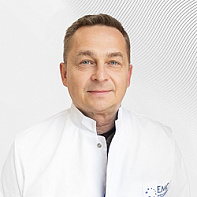
Dmitriy Subbotin
Ph.D. of Medical Sciences
-

Nenahov Filipp
Doctor of the highest category
-
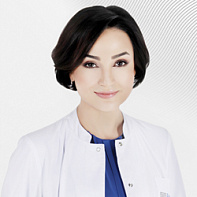
Saakyan Gayane
Doctor of the first category
-
.jpg)
Shpachenko Viktoria
-
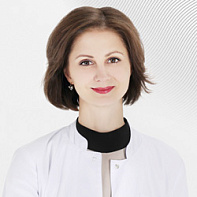
Borovkova Ekaterina
Doctor of the highest category, Professor, Doctor of Medicine
-
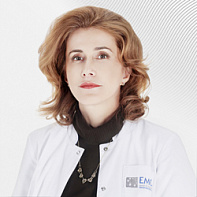
Madan Korneliya
-
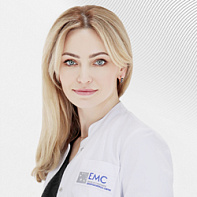
Kovaleva Larisa
Specialist in Gynecological Endocrinology, Ph.D. of Medical Sciences
-
.jpg)
Loginova Olga
Ph.D. of Medical Sciences
-

Charkhifalakyan Arevik
Head of the Gynecology and Oncogynecology Clinic
-
.jpg)
Panfilova Olga
Leading specialist in prenatal fetal diagnosis, Ph.D. of Medical Sciences
-

Maximova Yuliya
Head of the Center for Aesthetic and Reconstructive Gynecology, Ph.D. of Medical Sciences
-
Vladimir Nosov
Ph.D. of Medical Sciences
- An expert oncogynecologist is a surgeon with more than 26 years of experience, including experience working in leading hospitals in the USA
- A leading Russian specialist in the field of robotic surgery in oncogynecology
- Graduated from the Moscow Medical Academy named after I.M. Sechenov
- Graduated from the Moscow Medical Academy named...
Total experience
27 years
Experience in EMC
since 2012




